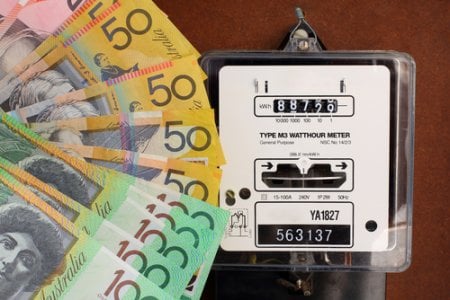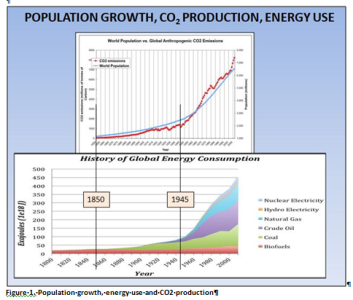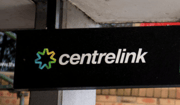Government unveils bold plan to slash energy bills
In a move that's sure to spark conversation, the Albanese government has unveiled a 'future gas strategy' aimed at keeping the home fires burning without burning a hole in your wallet.
As we all know, energy costs can be a significant concern, especially for those who are often on a fixed income.
The plan, which has already caused controversy, is designed to shore up the gas supply and make it more affordable for millions of Australians.
The strategy outlines Labor's support for new gas projects, including the development of new gas fields and import terminals.
The goal is to ensure that as Australia strides towards a net-zero future, we don't find ourselves in the dark or out in the cold due to power shortages or unaffordable bills.
Resources Minister Madeline King has been vocal about the necessity of this strategy, stating that there are 'uses for gas we can't substitute' just yet.
She explained: ‘We hope to (find a substitute for gas), but we don’t know when that will be possible. In the meantime, we can’t have wishful thinking without backup.’
‘The five million households across the country that rely on gas for their heating and energy while we transition to electrification, that gas needs to be affordable, and to be affordable you need reliable supply,’ she added.
As Minister King pointed out, the difficulty is predicting exactly how much gas will be needed to meet Australia's energy needs over the next two to three decades. However, what's clear is that gas will still play a role, particularly in industries that are hard to electrify.
The 'future gas strategy' is not just about keeping the lights on; it's also about supporting the economic transition to net-zero emissions and bolstering industries that are part of Labor's 'Made in Australia' agenda.
To address potential shortages, the strategy suggests that Australia could tap into new gas fields such as Scarborough off the Western Australian coast and Narrabri in northern New South Wales.
But it's not all about drilling and digging. The government is aware of the environmental concerns and the backlash from the Greens, teal independents, and even some within Labor's own ranks.
To mitigate these concerns, the strategy includes measures to reduce emissions from gas production. This includes promoting carbon capture and storage technologies and minimising methane release during extraction.
Furthermore, the strategy aims to prevent companies from hoarding untapped resources, encouraging them to increase gas extraction responsibly.
This is a critical point, as it's not just about finding more gas, but also about using what we have efficiently and effectively.
Before the ink is even dry on the strategy, it has been met with criticism from environmental groups.
NSW Senator David Shoebridge has called the decision to push for new gas mines 'criminal’, citing the urgent need to address climate change.
The debate over gas and its role in our energy mix is complex, and there are no easy answers.
However, it's crucial that we stay informed and engaged in these discussions, as the decisions made today will shape the world we leave behind for our children and grandchildren.
The gas strategy was briefly discussed in this video:
Source: ABC News (Australia)/YouTube
 We'd love to hear your thoughts on this new strategy. How do you think this will affect your energy bills and your comfort at home? Share your opinions in the comments below!
We'd love to hear your thoughts on this new strategy. How do you think this will affect your energy bills and your comfort at home? Share your opinions in the comments below!
As we all know, energy costs can be a significant concern, especially for those who are often on a fixed income.
The plan, which has already caused controversy, is designed to shore up the gas supply and make it more affordable for millions of Australians.
The strategy outlines Labor's support for new gas projects, including the development of new gas fields and import terminals.
The goal is to ensure that as Australia strides towards a net-zero future, we don't find ourselves in the dark or out in the cold due to power shortages or unaffordable bills.
Resources Minister Madeline King has been vocal about the necessity of this strategy, stating that there are 'uses for gas we can't substitute' just yet.
She explained: ‘We hope to (find a substitute for gas), but we don’t know when that will be possible. In the meantime, we can’t have wishful thinking without backup.’
‘The five million households across the country that rely on gas for their heating and energy while we transition to electrification, that gas needs to be affordable, and to be affordable you need reliable supply,’ she added.
As Minister King pointed out, the difficulty is predicting exactly how much gas will be needed to meet Australia's energy needs over the next two to three decades. However, what's clear is that gas will still play a role, particularly in industries that are hard to electrify.
The 'future gas strategy' is not just about keeping the lights on; it's also about supporting the economic transition to net-zero emissions and bolstering industries that are part of Labor's 'Made in Australia' agenda.
To address potential shortages, the strategy suggests that Australia could tap into new gas fields such as Scarborough off the Western Australian coast and Narrabri in northern New South Wales.
But it's not all about drilling and digging. The government is aware of the environmental concerns and the backlash from the Greens, teal independents, and even some within Labor's own ranks.
To mitigate these concerns, the strategy includes measures to reduce emissions from gas production. This includes promoting carbon capture and storage technologies and minimising methane release during extraction.
Furthermore, the strategy aims to prevent companies from hoarding untapped resources, encouraging them to increase gas extraction responsibly.
This is a critical point, as it's not just about finding more gas, but also about using what we have efficiently and effectively.
Before the ink is even dry on the strategy, it has been met with criticism from environmental groups.
NSW Senator David Shoebridge has called the decision to push for new gas mines 'criminal’, citing the urgent need to address climate change.
The debate over gas and its role in our energy mix is complex, and there are no easy answers.
However, it's crucial that we stay informed and engaged in these discussions, as the decisions made today will shape the world we leave behind for our children and grandchildren.
The gas strategy was briefly discussed in this video:
Source: ABC News (Australia)/YouTube
Key Takeaways
- The government is set to reveal its 'future gas strategy' aimed at bolstering support for new gas fields and import terminals to ensure affordable energy supply.
- The plan is in response to predictions of potential gas shortages within four years if Australia's supply isn't reinforced.
- The strategy is part of the economic transition to net-zero emissions and includes measures to reduce emissions from gas production.
- The announcement has already led to backlash from environmental groups and political parties like the Greens, who argued it contradicts efforts to reduce climate impact.









